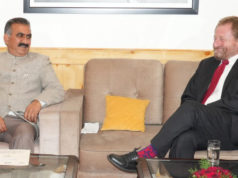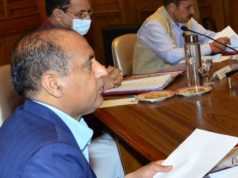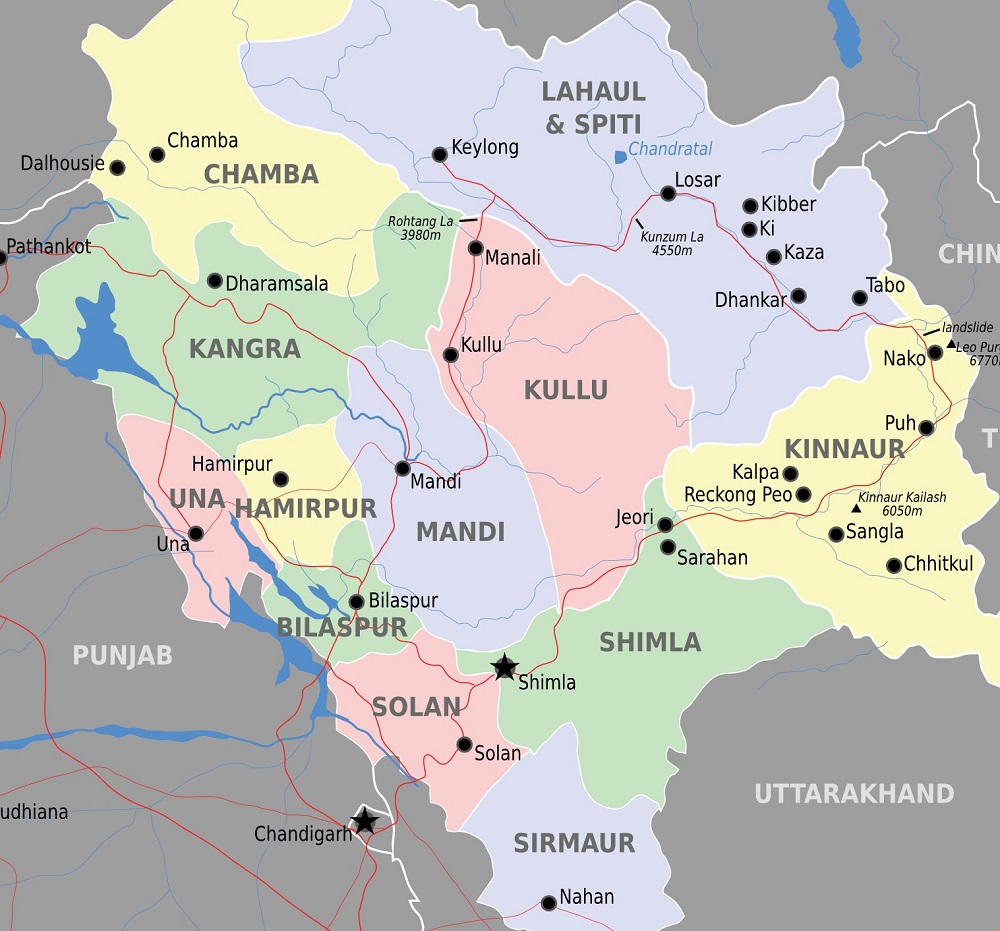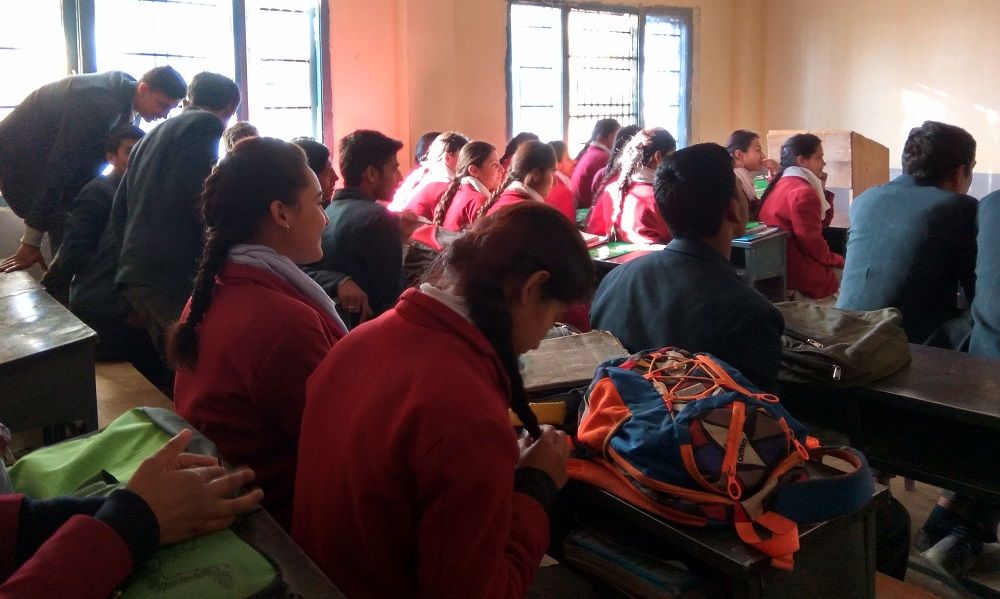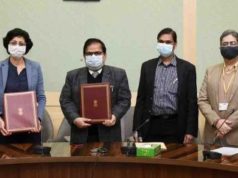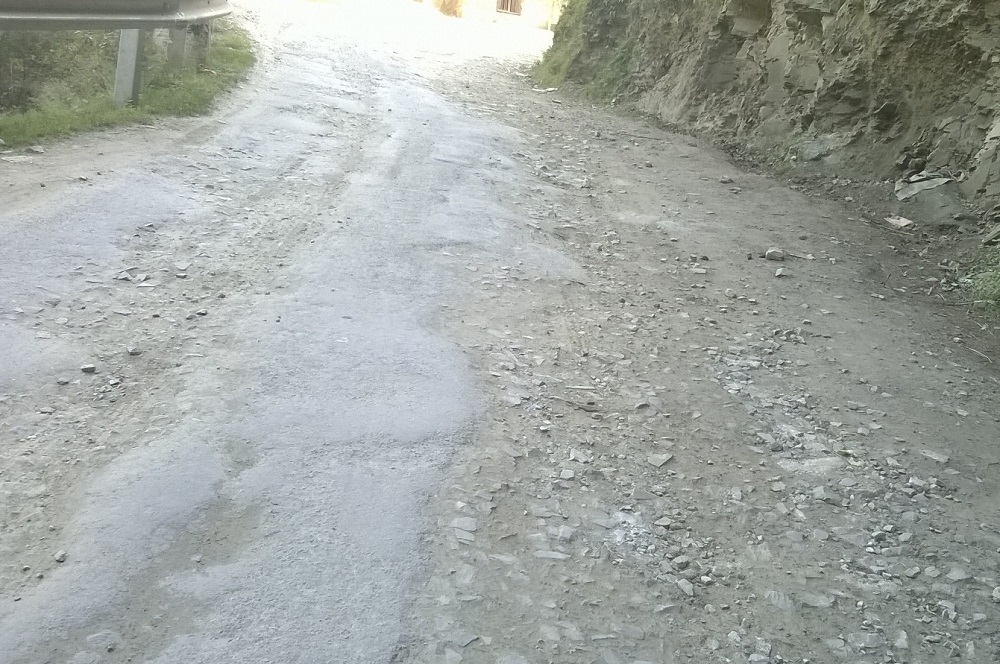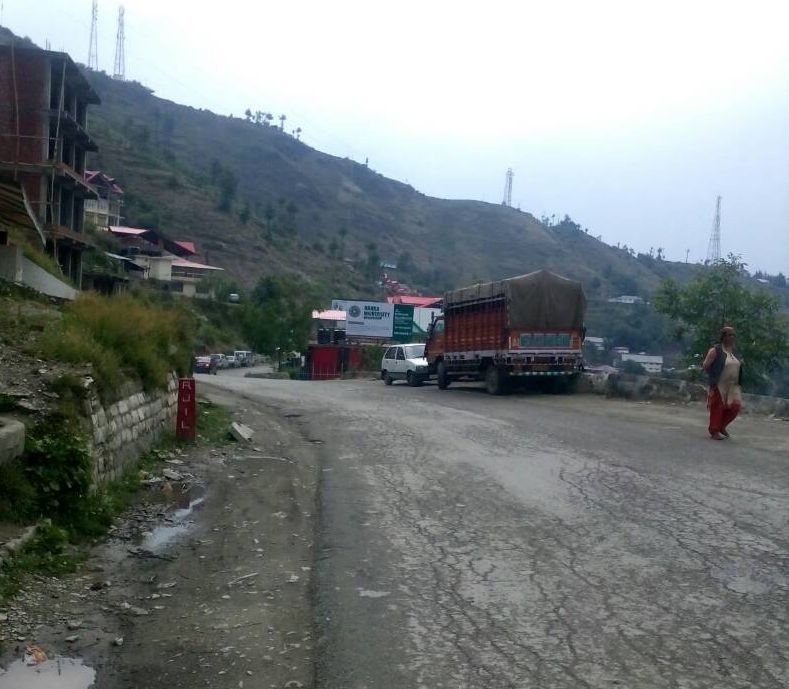Chief Minister Prem Kumar Dhumal disclosed here today that world bank in its Board Meeting held on 6th September 2012 at Washington approved first installment of Rs. 550-Cr out of Rs. 1100-Cr, Development Policy Loan (DPL) to support the Government of Himachal Pradesh (GoHP), in making its Green Growth Agenda Inclusive and Sustainable and move towards an environmentally sustainable model of economic growth.
Prof Dhumal said that the focus of this operation in HP would be towards climate smart development across its key engines of economic growth, energy, watershed management, industry and tourism
He said that, Himachal Pradesh was making tangible contribution to the Government of India’s (GoI) objective of reducing the intensity of greenhouse gas emissions. He said that the DPL loan was a culmination of the Bank’s long-standing and multi-sectoral involvement in Himachal Pradesh over the last decade.
Chief Minister said that it was a matter of pride as Himachal Pradesh provides economically valuable environmental services for much of the country. The State was home to three major river basins, and it serves as a watershed that is critical to the livelihoods of more than 200 million people in Haryana, Punjab, Uttar Pradesh and Rajasthan said he. Besides, it was also one of the country’s main sources of clean energy, generating hydropower that can help alleviate electricity shortages in much of North India. The Chief Minister said that forests of Himachal Pradesh also act as an important carbon sink and are known to be global biodiversity hotspots.
He said that the Bank’s Program of support was directed at helping Himachal Pradesh adapt and mitigate the effects of climate change, bringing in better policies and practices to guide the development of sustainable hydropower, empowering local communities to conserve their watershed better, promote cleaner methods of industrial production, promote environmentally sustainable tourism; integrate GIS in decision making.
Chief Minister said that we had identified the growth sectors which would be making significant contribution to the state GDP. He said that our vision was to usher in sustainable growth in sectors viz. Watershed, Agriculture & Horticulture, Tourism, Hydro Power and Industries so that the complementary and supplementary relationship between man and nature is maintained at the harmonious levels. He said that we are attempting main streaming the environment in these high growth and high foot prints sectors and are making macro level policy interventions for inclusive growth. Chief Minister exhorted people of the State to start taking initiatives locally for saving the planet earth.
Prof Dhumal welcomed the timely approval of the World Bank funded Development Policy Loan (DPL) to Support Inclusive Green Growth and Sustainable Development and further stated that this is the real recognition of efforts which the State Government had been making in the last four and half years in conservation of environment.
Chief Minister said that the State Government had initiated a program of community-led conservation of local watersheds across the state. Under this Program, villagers were drawing up local-level plans and implement them. He said that this was expected to improve the availability of water in the hills, help farmers move to higher-income yielding crops, promote the efficient use of scarce water resources, and help communities set up agri-businesses. The World Bank Loan would help the State Government pilot this approach in at least one Gram Panchayat in each of the state’s 77 blocks. It is expected that these watershed management practices will result in higher soil conservation, improved habitats for biodiversity, improved forest cover and reduced sedimentation, said he.
Prof Dhumal said that Hydropower had been identified as one of the key drivers of economic growth in the State. Harnessing the State’s large hydropower potential is a critical low-carbon way to contribute to India’s growing energy demand. He said that the State had ambitious plans for hydropower development of 10 GW over the next ten years. The DPL will help the State to make sure that the State’s hydropower program incorporates policies and practices that are environmentally and socially sustainable.
Chief Minister said that the Program would help State to adopt a river-basin approach in the assessment and management of the environmental risks associated with large-scale hydropower development. He said that this would include conducting cumulative impact assessment for all key river basins, reviewing and monitoring the release of environmental flows from hydropower projects, and drawing up Basin-Level Catchment Area Treatment Plans.
Reiterating the resolve of the Government to rehabilitate the oustees and local communities living in the vicinity of hydropower projects he said that in order to ensure that these villagers also get a share in the benefits from these development projects, State had launched an innovative revenue-sharing scheme supported by this operation, said Prof Dhumal. He said that under this new policy, one percent of power sales from each project would be distributed as annuity payment to households in project-affected.
Chief Minister said that the State recognizes that tax breaks and fiscal incentives have led to the creation of uncompetitive industries. He said that the Program would focus on seeking incentive-based economic policies to reduce industrial emissions and will promote sustainable tourism practices.
He said that the second DPL in the series of two was expected to be financed by the Clean Technology Fund (CTF), following the endorsement in November 2011 of India’s Investment Plan by the CTF Trust Fund Committee. Both IBRD and CTF offer concessional terms of financing.
Ono Ruhi, World Bank Country Director for India said sustaining HP’s natural resource base is important for both the state as well as for India. The Government of Himachal Pradesh recognizes the need for making sure that fuelling growth does not harm its natural assets and has introduced a range of initiatives designed to make its growth path environmentally sustainable.
Charles Cormier, Lead Environmental Specialist and Task Team Leader for the Program said that the aim of this operation was not to support an expansion of hydropower, but to support the adoption of better policies and processes that will make sure that hydropower projects in Himachal Pradesh were developed in a manner that is environmentally sustainable and also brings benefits to local communities
Chief Secretary Sudripta Roy said that the first Phase of the DPL consisting of 550-Cr would be funded by the IBRD and second Phase of 550-Cr would be funded by CIF/CTF. Himachal Pradesh being a special category state will get this assistance as 90% grant and 10% loan from GoI. He complimented Dr. Nagin Nanda, IFS Secretary-cum-Director, Environment, Science & Technology, the Department of Environment, Science & Technology and the entire team for their leadership, vision, management abilities and persistence.



